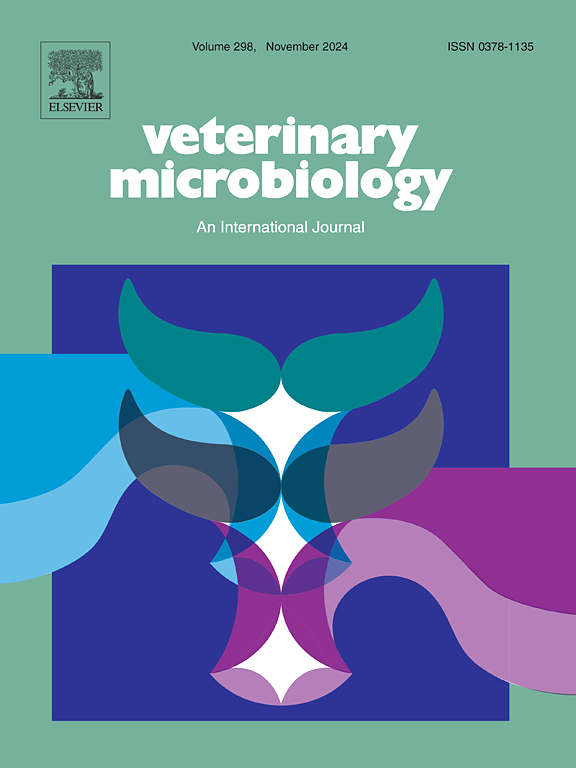Cyclophilin A promotes porcine deltacoronavirus replication by regulating autophagy via the Ras/AKT/NF-κB pathway
Abstract
Porcine deltacoronavirus (PDCoV) is an important enteric coronavirus that has caused major worldwide economic losses in the pig industry. Previous studies have shown that cyclophilin A (CypA), a key player in aetiological agent infection, is involved in regulating viral infection. However, the role of CypA during PDCoV replication remains unknown. Therefore, in this study, the role of CypA in PDCoV replication was determined. The results demonstrated that PDCoV infection increased CypA expression in LLC-PK1 cells. CypA overexpression substantially promoted PDCoV replication. Proteomic analysis was subsequently used to assess changes in total protein expression levels after CypA overexpression. Gene Ontology (GO) functional analysis and Kyoto Encyclopedia of Genes and Genomes (KEGG) pathway enrichment analysis were used to further determine the mechanisms by which CypA affects viral replication. Proteomic analysis revealed that CypA protein overexpression significantly upregulated 75 differentially expressed proteins and significantly downregulated 172 differentially expressed proteins. The differentially expressed proteins were involved mainly in autophagy and activation of the host innate immune pathway. Subsequent experimental results revealed that the CypA protein promoted viral replication by reducing the levels of natural immune cytokines and mitigated the inhibitory effect of chloroquine (CQ) on viral replication. Further investigation revealed that CypA could activate the Ras/AKT/NF-κB pathway, mediate autophagy signalling and promote PDCoV replication. In summary, the findings of this study may help elucidate the role of CypA in PDCoV replication.

 求助内容:
求助内容: 应助结果提醒方式:
应助结果提醒方式:


